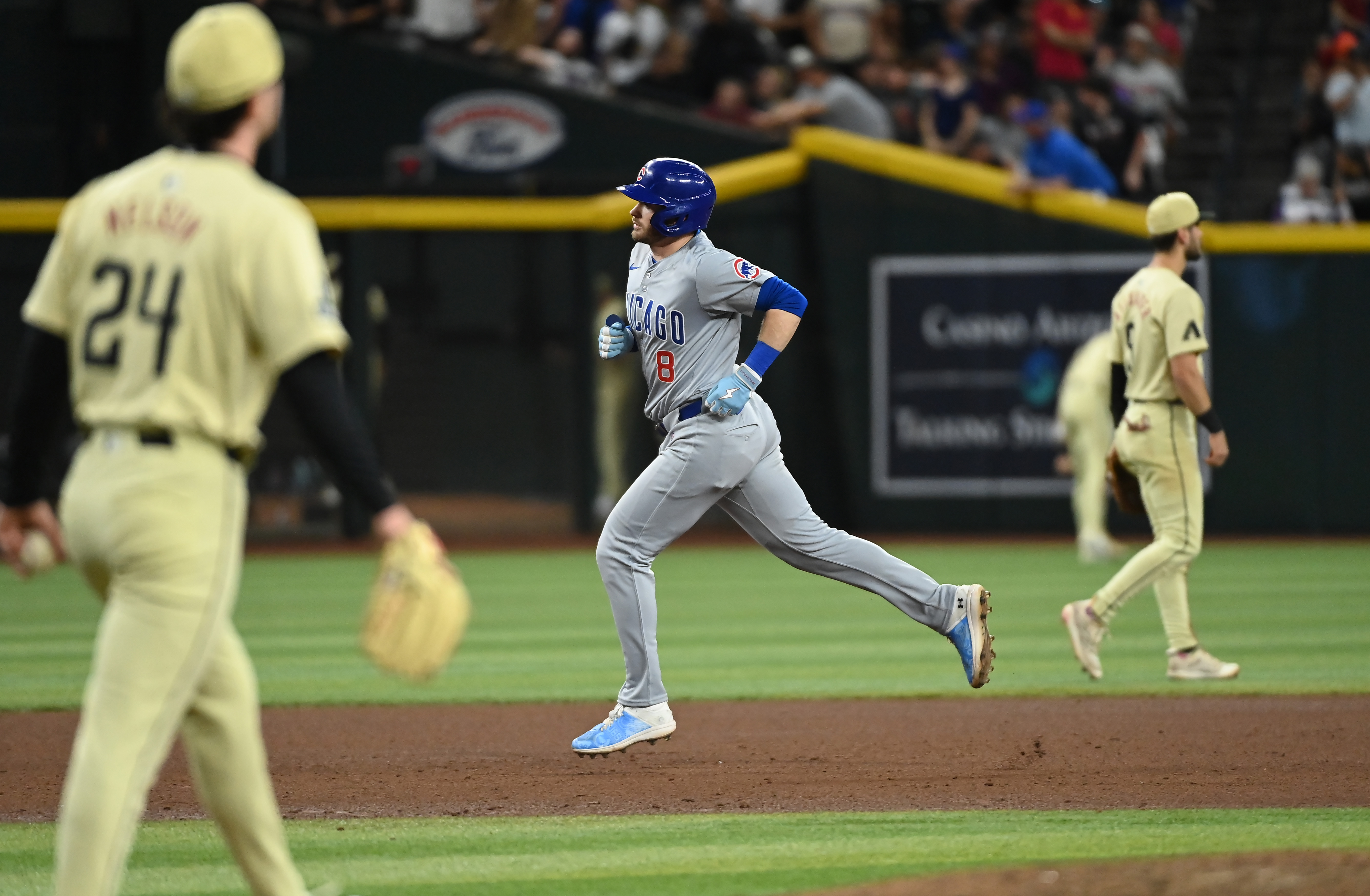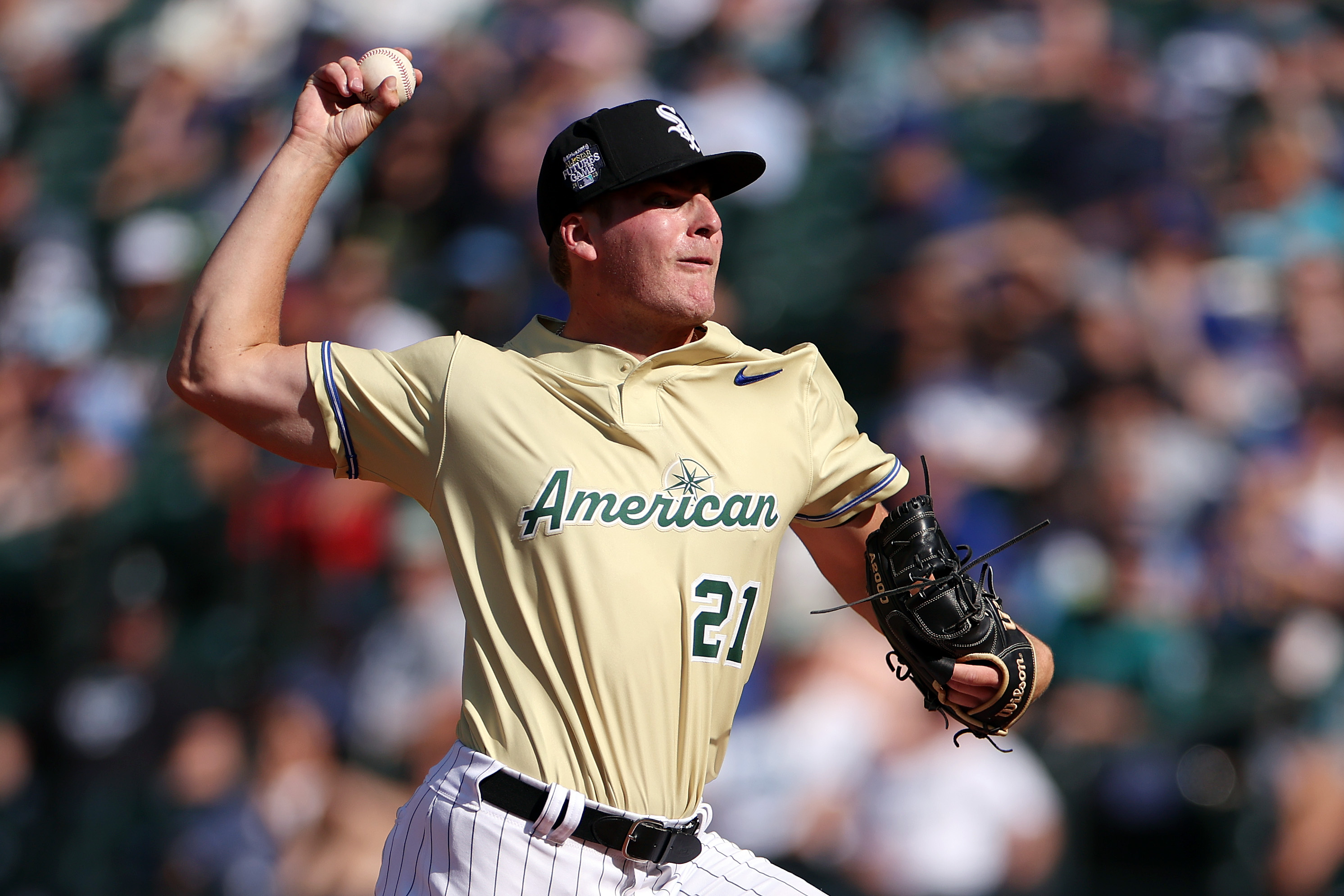Over the last couple days, the Cubs' financial picture for the winter has come into focus.
The organization surprised no one by picking up Anthony Rizzo's $16.5 million option and Jose Quintana's $11.5 million option nor by letting veterans Derek Holland, Brandon Morrow, Tony Barnette and David Phelps walk instead of picking up their respective options.
The only mild surprise came when the Cubs opted not to retain Kendall Graveman for $3 million after he spent all of 2019 — his first year with the club — rehabbing from Tommy John surgery. The 28-year-old right-hander has 83 career big-league games (78 starts) under his belt and $3 million is not a hefty price to pay for a potential back-of-the-rotation guy, but the Cubs clearly felt it wasn't worth the gamble at that price for a guy who would have an innings limit even if he had no other ill effects from the elbow procedure.
They also chose not to extend a qualifying offer to Cole Hamels, as the soon-to-be-36-year-old would've likely taken the $17.8 million to return to the Cubs on a one-year deal for 2020 and that would've been a huge blow to the organization's budget for the new season.
Just like last year when Theo Epstein traded away Drew Smyly and his $7 million salary to be able to afford Hamels' $20 million option, how the Cubs approached the first offseason domino (options) gave us our first clue for the winter's budget. But they won't ever come right out and telegraph their financial plan:
"We're not gonna really talk about our payroll or budget, just for strategic reasons," Epstein told David Kaplan and Pat Boyle on a Halloween interview on ESPN Radio. "It also doesn't really matter — words don't matter there. But we don't want to tip off the rest of the league to what we're trying to do.
"I think when we're done assembling the team, you'll have a good feel for what our budget was, but we're gonna attack the offseason with the various means of player acquisition and try to shape the team for next year and for the future. We have to be mindful of both as we attack the offseason."
MLB
So with all the options out of the way, here's where the Cubs' payroll stands as the offseason picks up in earnest.
Committed salary
Jason Heyward - $23.5 million
Yu Darvish - $22 million
Jon Lester - $20 million
Anthony Rizzo - $16.5 million
Craig Kimbrel - $16 million
Tyler Chatwood - $13 million
Kyle Hendricks - $12 million
Jose Quintana - $11.5 million
Daniel Descalso - $2.5 million
David Bote - $960,000
Total (10 players): $137.96 million
Arbitration players (figures estimated by MLB Trade Rumors)
Kris Bryant - $18.5 million
Javy Baez - $9.3 million
Kyle Schwarber - $8 million
Addison Russell - $5.1 million
Willson Contreras - $4.5 million
Albert Almora Jr. - $1.8 million
Kyle Ryan - $1.1 million
Total (7 players): $48.3 million
Pre-arb players
Note: MLB minimum salary was $555,000 in 2019 but will see a bit of a spike in 2020, so let's pencil it in at $560,000. Teams can pay players more than that and often do based on performance and good will, but they don't have to do that, so let's stick with the base salary for every player to keep things simple.
Ian Happ - $560,000
Victor Caratini - $560,000
Tony Kemp -$560,000
Nico Hoerner - $560,000
Colin Rea - $560,000
Rowan Wick - $560,000
Brad Wieck - $560,000
Alec Mills - $560,000
Duane Underwood Jr. - $560,000
Total (9 players): $5.04 million
There's also a $3 million buyout included for Morrow that will be on the books for 2020.
Add it all up and we're looking at $194.3 million next season for only 26 players (remember, MLB teams will have 26-man rosters beginning in 2020).
That figure doesn't include other players that will be on the 40-man roster in the minor leagues or any other raises for the pre-arb players in the big leagues. Throw in an estimated $15 million for player benefits and Roster Resource estimates the Cubs' 2020 luxury tax payroll to be $219.8 million — quite a bit over the $208 million luxury tax.
And that's not even taking into account any offseason moves via trade or free agency.
Last season, the Cubs were one of three teams (along with the Red Sox and Yankees) to eclipse the $206 million luxury tax threshold. Epstein and Co. blew by the figure by nearly $29 million, according to Spotrac, and were subsequently taxed $6.8 million as a result.
The Cubs did not hit the luxury tax in 2018, so this was only a 20 percent tax on the overages. If they eclipse the threshold again in 2020, they will be looking at a 30 percent luxury tax and would see their top draft pick drop 10 spots if they go over by $40 million.
If the Cubs are really trying to get under the luxury tax to reset the penalties in 2020 (as Kaplan mentioned on the latest CubsTalk Podcast), Epstein has his work cut out for him this winter. They would need to shed around $12 million in salary, and that's even before any acquisitions.
That explains why they didn't want to take the risk that Hamels would accept the qualifying offer and also why $3 million was too much to commit to a pitcher (Graveman) coming off major injury.
Now, looking at the roster and salary figures above, there are some easy ways for the Cubs to save money.
It's hard to see Russell returning to the team in any capacity in 2020 and even if he did, there's no way the Cubs would pay him more than $5 million given his off-field issues and on-field struggles. It's also tough to envision the Cubs shelling out nearly $2 million for Almora when he's coming off a season in which he posted a .271 on-base percentage and a negative WAR.
Beyond that, there are also trades the Cubs could make to shed some salary. Maybe they find a taker for Chatwood in the final year of his deal. Or maybe Quintana and his $11.5 million salary on a one-year deal would be enticing to a pitching-needy team.
If ever there was a time to deal away players from the position-player core, now would be it as trades might be the only way to fill holes on the roster while also freeing up payroll.
Fans undoubtedly aren't worried about resetting the luxury tax and would love their team to go all-in trying to win the World Series in 2020. But for an organization coming off a disappointing 84-win season and back-to-back falls sitting at home watching the majority of the playoffs, it's hard to see that as a realistic course of action for the Cubs this winter.
Cubs fans frustrated by the team's lack of spending last offseason don't figure to be much happier this winter, but there should still be plenty of change coming to the roster.
Click here to download the new MyTeams App by NBC Sports! Receive comprehensive coverage of your teams and stream


